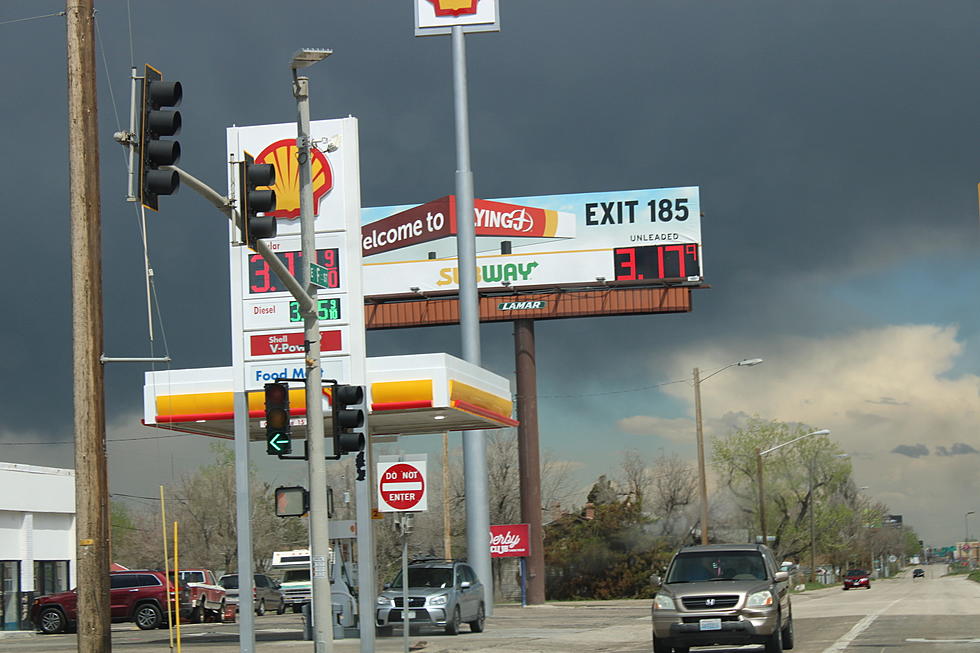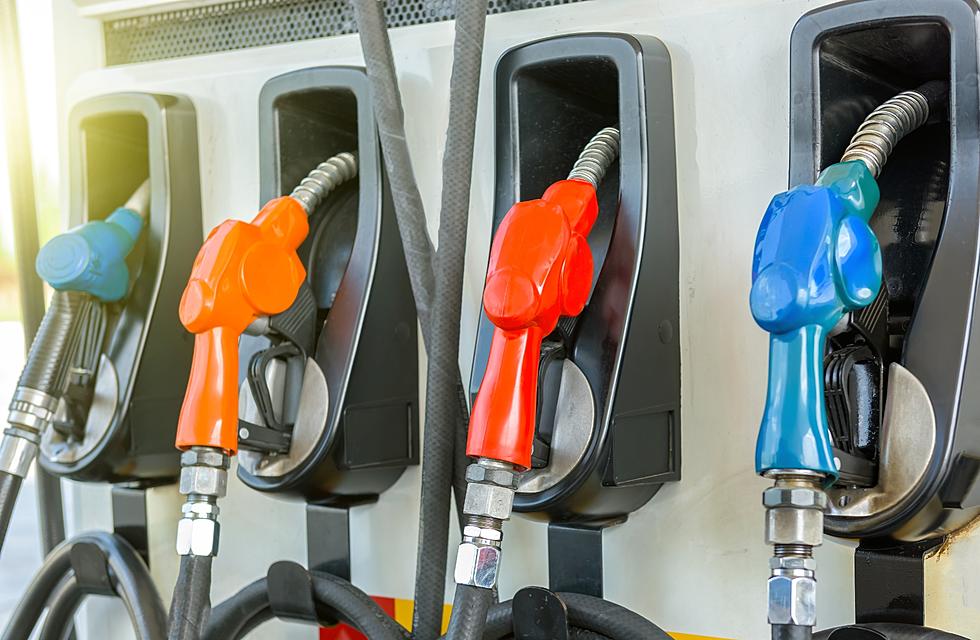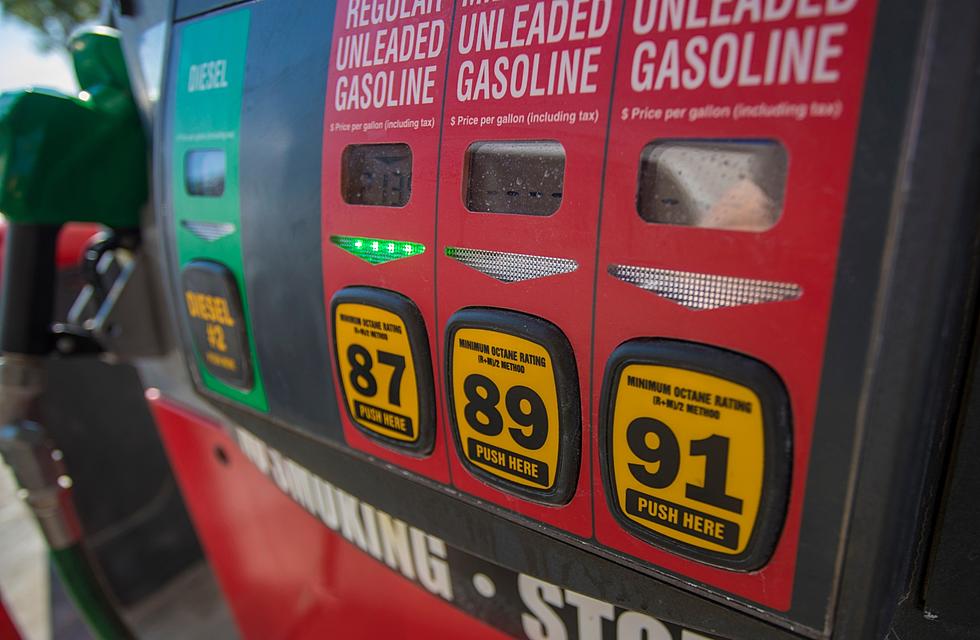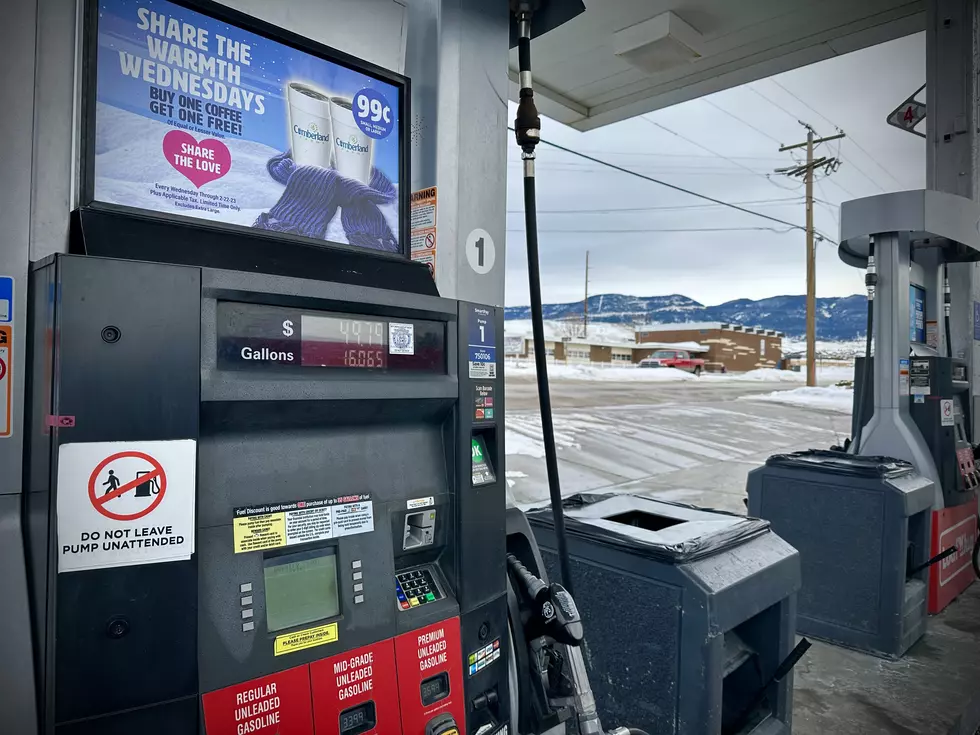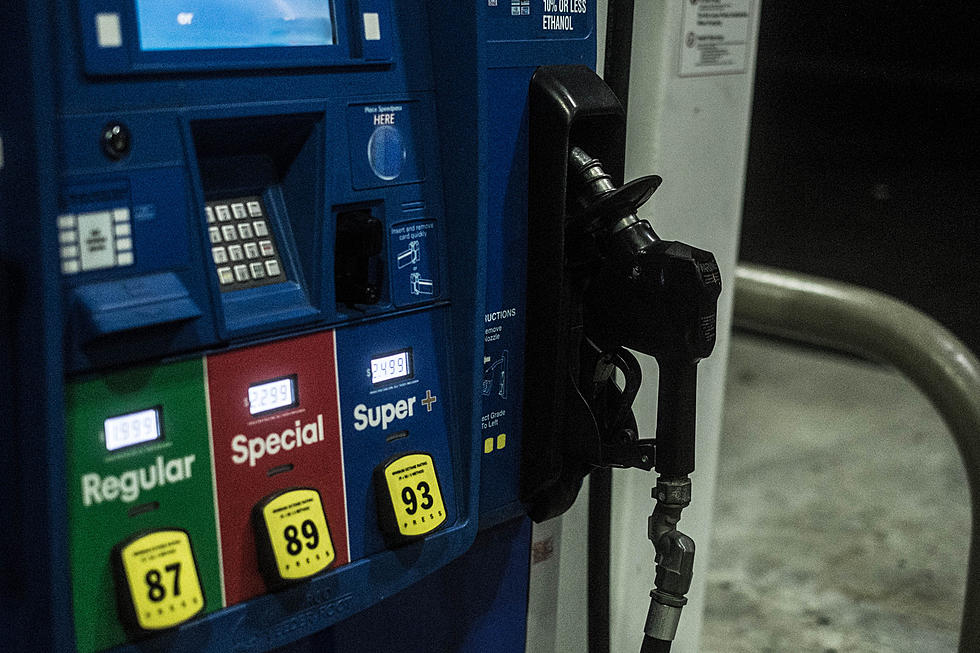
Wyoming Gas Prices Rise Over 6 Cents, Diesel Continues to Outpace Gas
Average gasoline prices in Wyoming have risen 6.5 cents in the last week, averaging $4.16 a gallon Monday, according to GasBuddy surveys.

Prices in Wyoming are 11.4 cents higher than a month ago and $1.21 higher than a year ago, with the cheapest station in Wyoming being priced at $3.79 a gallon Sunday while the most expensive was $4.79 a gallon.
Natrona County currently is the fifth cheapest county in the state at an average gas price of $4.06 a gallon on Monday, with Albany County as the cheapest at $3.92 a gallon, while Uinta County is the most expensive at an average of $4.40 a gallon.
The national average price of gasoline has risen 13.6 cents in the last week, averaging $4.31 a gallon Monday, with the national average up 19.6 cents from a month ago and $1.36 higher from a year ago.
Wyoming is the 24th most expensive state in the country, while Georgia is the cheapest average state on Monday at $3.82 a gallon while California continues to be the most expensive state at $5.81 a gallon.
Crude oil prices are still above $100, up to $104 a barrel, but lower than a recent high of $119.65 a barrel on March 8, while diesel has risen 22.6 cents nationally in the past week and currently sits at $5.51 per gallon.
Patrick De Haan, head of petroleum analysis at GasBuddy, said:
"Gasoline and diesel prices alike saw strong upward momentum last week as oil prices continued to climb after the EU signaled its desire to sanction Russian oil. In addition, U.S. petroleum inventories saw yet another weekly decline as we near the start of summer driving season," De Haan said. "Not only are diesel prices at a record high, they are at their largest differential to gasoline on record, surpassing the 98-cent difference in 2008 and currently standing at a $1.20 per gallon premium. While motorists filling with gasoline have seen a slight rise in prices, diesel's surge will be a double whammy as diesel prices will soon be passed along to retail channels, further pushing up the cost of goods."
7 Trails To Hike In Central Wyoming
More From K2 Radio
